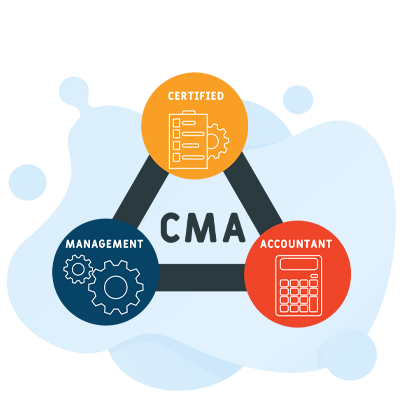
Introduction
The Certified Management Accountant (CMA) is a prestigious professional credential awarded by the Institute of Management Accountants (IMA) to finance and accounting professionals who possess the necessary skills and expertise in management accounting and financial management. In this comprehensive guide, we will explore the steps to becoming a CMA, the benefits of the certification, and tips for successfully navigating the CMA certification process.
1. Understanding the Role of a Certified Management Accountant
A Certified Management Accountant (CMA) is a finance and accounting professional with expertise in strategic management and financial decision-making. CMAs typically work in various industries and sectors, such as manufacturing, healthcare, government, and non-profit organizations. Their responsibilities may include financial analysis, budgeting, forecasting, risk management, and performance evaluation.
2. Benefits of Becoming a CMA
Becoming a CMA offers numerous benefits, including:
a. Enhanced career opportunities: The CMA credential signifies that you possess advanced knowledge and skills in management accounting, which can lead to better job opportunities, promotions, and higher salary prospects.
b. Global recognition: The CMA certification is recognized worldwide, making it an excellent choice for professionals seeking to work in international finance and accounting roles.
c. Professional development: The CMA program helps professionals develop critical skills in strategic management, decision-making, and leadership, which can be invaluable throughout their careers.
d. Networking opportunities: CMA holders gain access to a global network of fellow professionals, providing opportunities for networking, collaboration, and professional growth.
3. CMA Eligibility Requirements
Before pursuing the CMA certification, you must meet the following eligibility requirements:
a. Education: Candidates must hold a bachelor’s degree from an accredited college or university or an equivalent professional certification.
b. Experience: Candidates must have at least two years of continuous professional experience in management accounting or financial management.
c. IMA membership: Candidates must be active members of the Institute of Management Accountants (IMA).
4. The CMA Exam
The CMA exam consists of two parts, each of which must be passed within three years of entering the CMA program:
a. Part 1: Financial Planning, Performance, and Analytics — This section covers topics such as external financial reporting decisions, planning, budgeting, forecasting, performance management, cost management, and internal controls.
b. Part 2: Strategic Financial Management — This section focuses on financial statement analysis, corporate finance, decision analysis, risk management, investment decisions, and professional ethics.
Each part of the CMA exam consists of 100 multiple-choice questions and two essay questions. Candidates are given four hours to complete each part.
5. Preparing for the CMA Exam
To successfully prepare for the CMA exam, consider the following steps:
a. Review the CMA exam content: Familiarize yourself with the exam content and structure by reviewing the IMA’s CMA Learning Outcome Statements and the CMA Handbook.
b. Develop a study plan: Create a study schedule that allows you to allocate sufficient time for each topic, practice exams, and review sessions.
c. Use study materials: Leverage a variety of study materials, such as textbooks, online resources, and CMA review courses, to maximize your understanding of the exam content.
d. Practice exams: Take practice exams regularly to assess your progress, identify areas for improvement, and build confidence in your test-taking abilities.
e. Join study groups: Collaborate with fellow CMA candidates to share resources, exchange ideas, and provide mutual support throughout the study process.
6. Maintaining Your CMA Certification
After passing the CMA exam and meeting the eligibility requirements, you must maintain your CMA certification by adhering to the following guidelines:
a. Continuing Professional Education (CPE): CMAs are required to complete at least 30 hours of CPE annually, including a minimum of two hours in ethics. This ensures that your knowledge and skills remain up-to-date and relevant.
b. Annual IMA membership: Maintain your IMA membership to remain in good standing as a CMA and have access to valuable resources, networking opportunities, and professional development programs.
c. Ethical conduct: As a CMA, you are expected to adhere to the IMA’s Statement of Ethical Professional Practice, which outlines the principles and standards that guide your professional conduct and decision-making.
7. Tips for Success in the CMA Certification Process
a. Set realistic goals: Establish achievable milestones for completing each stage of the CMA certification process, including studying for the exam, passing each part, and fulfilling the experience requirement.
b. Stay organized: Keep track of your study materials, exam registration deadlines, and CPE requirements to ensure a smooth and efficient certification journey.
c. Seek support: Reach out to fellow CMA candidates, mentors, or colleagues for advice, encouragement, and guidance throughout the certification process.
d. Stay committed: Remember that becoming a CMA requires dedication, perseverance, and hard work. Stay focused on your goals and the benefits that the certification will bring to your career.
e. Celebrate your achievements: Acknowledge and celebrate your accomplishments, such as passing an exam part or completing the certification process, to maintain motivation and a sense of progress.
Summary
Becoming a Certified Management Accountant (CMA) is a rewarding and challenging journey that can open doors to exciting career opportunities and professional growth. By understanding the role of a CMA, the benefits of the certification, and the steps involved in the certification process, you can confidently embark on your path to becoming a CMA.
Remember to meet the eligibility requirements, prepare thoroughly for the CMA exam, maintain your certification through continuing education, and follow best practices for success throughout the process. With dedication and persistence, you can achieve the prestigious CMA designation and enjoy a fulfilling career in management accounting and financial management.
Find more … …
Excel Data Analysis for Beginner and Data Analyst : Tutorial 18 – Financial Analysis
The Ultimate PPC Management Guide: Strategies, Techniques, and Tips for Success